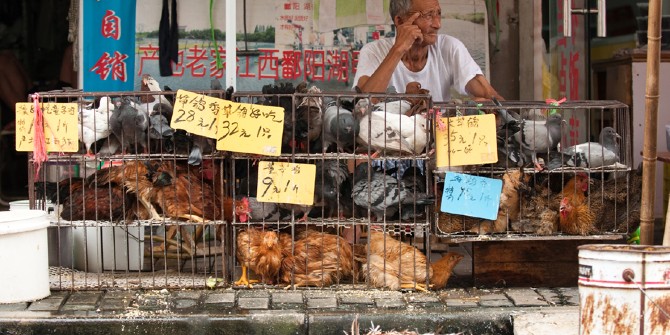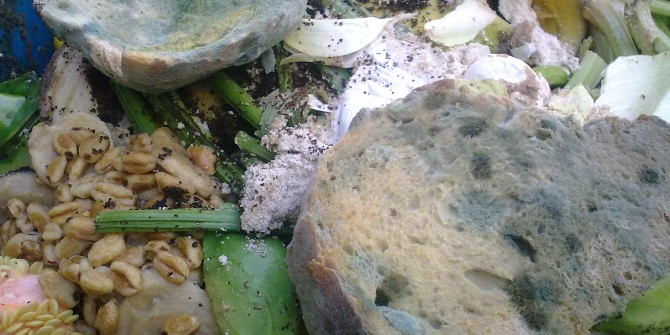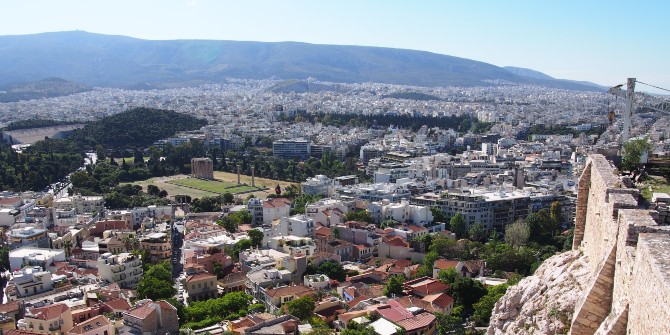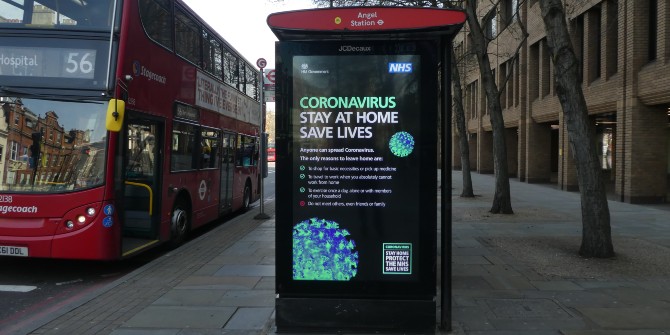Unless we give people cheap and attractive alternatives to flying, they will return to old habits once the pandemic is over and carbon emissions will rise again. Maria Sharmina, Alice Larkin (University of Manchester) and Naomi Vaughan (UEA) suggest practical ways to reduce air travel.
The number of air passengers fell by 2.7bn in 2020 – a 60% drop. As a result, CO2 emissions from flying fell by 40%. But as COVID-19 vaccines are rolled out around the world, would-be holidaymakers and business travellers are hoping to jet off again. If this pent-up demand for air travel is met, a large chunk of the emission savings during the pandemic will be erased as flying becomes cheap and easy again.
Figure 1: Carbon emission reductions by sector in 2020 (% change)
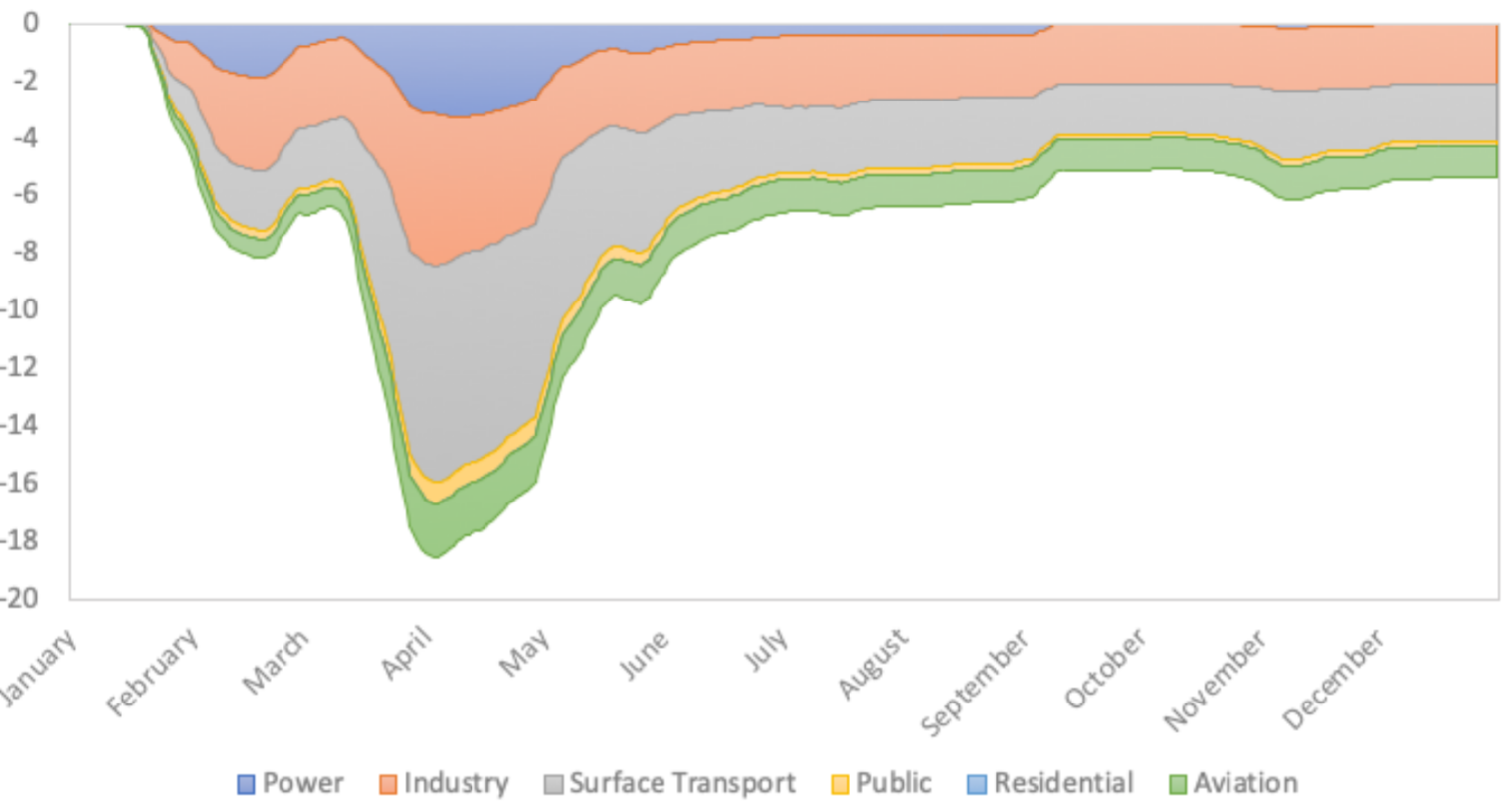
Source: Global Carbon Project 2020
Aviation is one of the most difficult sectors to decarbonise quickly. Technologies which could replace fossil-fuelled engines aren’t available at scale or rapidly deployable fleet-wide, and air traffic in commercial passenger planes has more than doubled since 2000. In our research, we found that reducing emissions from airlines in line with the Paris climate agreement must involve reducing demand for flying.
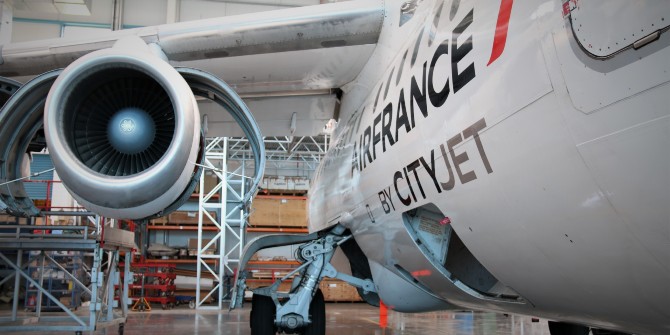
During the pandemic, foregoing flying has become normal for people who would usually fly more than once a year. Many have realised that dramatic lifestyle changes are feasible, and in some cases even desirable. By the time it becomes logistically easier to fly again, we need to encourage and incentivise these new habits and preferences so as to keep emission trends on a downward trajectory.
The stories we tell
We would start by trying to shift the current media focus from what people have lost in the pandemic to the gains that have emerged. Positive stories of people engaging more with their local community and environment due to lockdown travel restrictions abound on social media. The engagement with public green and blue space in cities significantly increased in 2020: the use of urban parks rose by 160%.
We would need to draw on arts, science and engineering to create and promote positive stories of change through new documentaries, works of fiction, exhibitions, and infrastructures. We could enrol highly visible and popular role models who have stopped or drastically reduced their flying – actors, policymakers, scientists, entrepreneurs. We need to hear about their lived experiences of the alternatives they adopted and what they have gained as a result. Research in Italy shows that these experiences include ‘rediscovering family’, ‘discovering self’, ‘sharing life at a distance’, and ‘being part of an extraordinary experience’.
What works at work?
Working from home has had positive impacts on equality, diversity, inclusion and access. A ‘what works?’ survey at the University of Manchester showed that once kids were back in school in the autumn, the virtual world with its inherent flexibility helped staff to participate more, where they were previously constrained by overnight stays and London-centric policy structures. If carefully managed, virtual access can bring about a paradigm shift which includes people with caring responsibilities or disabilities. Online events could become the norm, thereby reducing emissions even for those who still find it easy and affordable to travel.
Annual company budgets could place strict limits on funds for business travel, and reinvest the money in other activities for staff. This change could be led by public sector bodies such as universities that receive government funding. The focus on time and its value is particularly important, so that organisations can better quantify time lost and time gained through avoiding travel, while making sure that break and rest time is equally valued.
Universities and other publicly-funded organisations should expand their investment in virtual meetings and events so as to reduce the need for non-essential flights by staff, students and guests. Including student flights in emissions accounting for universities would support this shift in thinking.
Making alternatives cheaper and more enjoyable
The benefits of social interaction can be difficult to replicate virtually, but digital platforms are improving and will continue to do so as people experiment with new ideas. Zoom makes it possible to host larger groups and allow different types of interactions (e.g. anymeets, vFairs).
People would need incentives to use alternative low-carbon travel, particularly if plane fuel continues to evade taxation. When the risk of COVID has receded, these might include cheap train fare deals for weekend breaks with a guaranteed seat, coordinated with cultural, restaurant and accommodation deals.
Finally, what if internet access were to become free nationwide? Governments may worry that if we are not moving about as much we will spend less. But if we have unlimited broadband, might we spend differently and less carbon-intensively, particularly if this means we can avoid the cost of petrol on the daily commute?
Most of our suggestions here would target the frequent flyers who travel for business, celebratory breaks (birthdays, stag and hen dos, retirement parties), or shopping. Together with a slow emergence from the pandemic, fears of reinfection, and the ongoing need to quarantine, they might make popping off for a quick weekend break to New York less appealing.
The drastic drop in air traffic as a result of COVID-19 is a huge opportunity for policy planning, sustained behavioural change, and research. It shows that reducing air travel is not necessarily a bad thing and that the benefits in terms of cutting CO2 emissions are enormous.
This post represents the views of the authors and not those of the COVID-19 blog, nor LSE.


